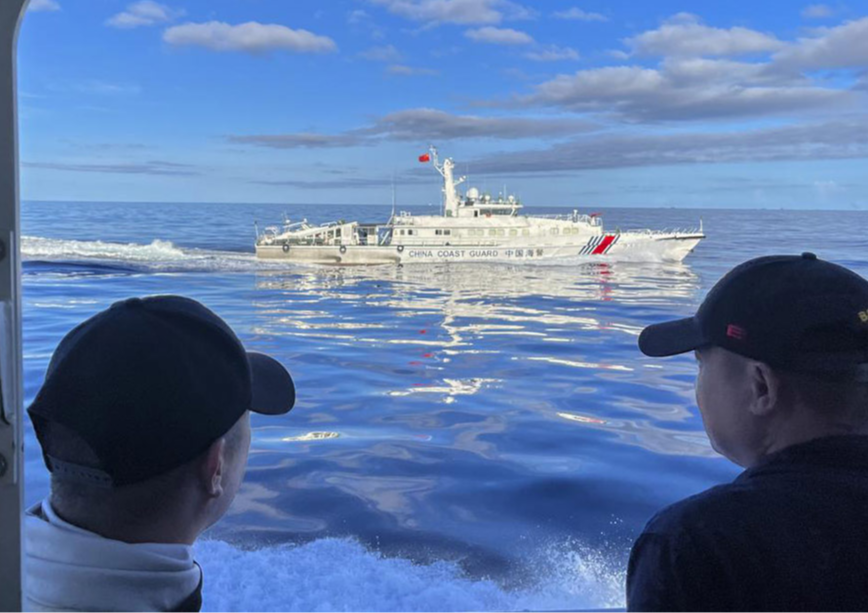-
CENTRES
Progammes & Centres
Location
New Delhi’s strategic recalibration recognises the South China Sea’s critical importance to regional security and the global maritime order

In March 2024, India’s External Affairs Minister, S. Jaishankar, articulated, in a joint statement during his visit to Manila, India’s full support for the Philippines in upholding its national sovereignty. Mr. Jaishankar’s comment was made amid the ongoing South China or West Philippine Sea dispute between Manila and Beijing which witnessed, arguably, its most intense and volatile year in 2023, with frequent tensions at sea and diplomatic friction. A joint statement in 2023 between New Delhi and Manila had also called for China to adhere to the rules-based maritime order and acknowledge the International Court of Justice ruling of 2016 in favour of Manila. Both these statements are part of an evolving approach that signals a departure from India’s earlier more cautionary and neutral position vis-à-vis the South China Sea. New Delhi’s position on the South China Sea has changed significantly in recent years, mirroring its broader strategic and economic aspirations on the global stage through a more clearly articulated stance backing the provisions of international maritime law, sovereignty, and sovereign rights in the South China Sea.
New Delhi’s engagement with the region was initially primarily economic, driven by its Look East Policy, which aimed to enhance economic integration with Southeast Asia and the imperative to secure energy resources to fuel its growing economy. The participation of Indian state-owned enterprises, such as the Oil and Natural Gas Corporation’s overseas arm (ONGC Videsh), in oil and gas exploration projects in Vietnam’s exclusive economic zones (EEZs) and other similar ventures not only signified India’s economic stakes in the region but also its support for the principle of freedom of exploration and exploitation of maritime resources within the bounds of international law, specifically the United Nations Convention on the Law of the Sea (UNCLOS).
Both these statements are part of an evolving approach that signals a departure from India’s earlier more cautionary and neutral position vis-à-vis the South China Sea.
The transformation of India’s policy orientation from Look East to Act East under Prime Minister Narendra Modi’s administration has marked a shift towards a more strategic and active engagement with the Indo-Pacific region. This policy evolution reflects India’s acknowledgment of the changing geopolitical landscape and the need for a more proactive and multifaceted foreign policy approach with the Act East Policy emphasising not only economic integration but also strategic partnerships and expanded security cooperation with countries in the Indo-Pacific including Vietnam, Malaysia, and Singapore, besides the Philippines. India has also simultaneously strengthened its own capacities through forward positioning, mission-based deployments, reinforced maritime domain awareness, and deep-water maritime facilities.
With geopolitical tensions in the South China Sea having steadily escalated, particularly due to China’s assertive territorial claims and militarisation efforts, India’s stance has become more nuanced while simultaneously becoming less cautious. The evolution of India’s position on the South China Sea cannot be decoupled from its complex relationship with China. The two countries have a long history of border disputes which have intensified since the Galwan Valley incident of 2020- with Beijing’s periodic incursions into India’s territory and, most recently, even renaming Indian villages in Arunachal Pradesh.
The Galwan Valley incident also saw India sending a frontline warship to the South China Sea in a demonstration of India’s capability for asymmetric deterrence. China’s assertive posture and territorial claims in the South China Sea and along India’s land border have substantially disruptive implications for regional stability. India’s strategic engagements, including regular naval exercises and the strengthening of military cooperation with Southeast Asian nations, serve dual purposes: they underscore India’s commitment to regional security and act as a counter to China’s unlawful assertions.
The ASEAN centrality in India’s Indo-Pacific strategy also makes it imperative for India to buttress the ASEAN position, though differences within the regional grouping continue to pose a challenge to such endeavours.
New Delhi’s strategic recalibration has been driven by a recognition of the South China Sea’s critical importance to regional security and the global maritime order. The disputes in the South China Sea, primarily involving China and several Association of Southeast Asian Nations (ASEAN) countries, have implications for the freedom of navigation and overflight — principles that are vital for not only India’s trade and energy transportation routes but also that of countries across the globe. As a responsible stakeholder in the Indo-Pacific, India can no longer shy away from taking unambiguous positions on matters of such critical importance. Its centrality in the Indo-Pacific theatre means that its periphery is no longer only the Indian Ocean but also the wider maritime domain where China’s rise is challenging the status quo in ways not anticipated before. The ASEAN centrality in India’s Indo-Pacific strategy also makes it imperative for India to buttress the ASEAN position, though differences within the regional grouping continue to pose a challenge to such endeavours.
New Delhi’s advocacy for a rules-based international maritime order, especially its emphasis on UNCLOS, reflects a stance against unilateral actions that threaten regional stability. This stance, while rooted in India’s principled foreign policy approach, also indirectly challenges China’s expansive territorial claims and activities in the South China Sea and reflects India’s positioning of itself as a responsible stakeholder committed to regional stability and security. India’s nuanced approach in the South China Sea, therefore, is emblematic of its broader strategy aiming to safeguard its interests while contributing to a collective effort to maintain peace, stability, and respect for international law in the Indo-Pacific region.
This commentary originally appeared in The Hindu.
The views expressed above belong to the author(s). ORF research and analyses now available on Telegram! Click here to access our curated content — blogs, longforms and interviews.

Professor Harsh V. Pant is Vice President – Studies and Foreign Policy at Observer Research Foundation, New Delhi. He is a Professor of International Relations ...
Read More +
Pratnashree Basu is an Associate Fellow, Indo-Pacific at Observer Research Foundation, Kolkata, with the Strategic Studies Programme and the Centre for New Economic Diplomacy. She ...
Read More +